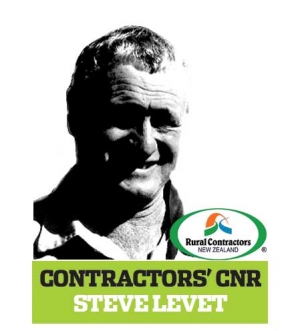I READ with interest in the last issue of Rural News about John Key’s visit to a large asparagus growing operation in Horowhenua where he commented that his Government is a strong supporter of the Recognised Seasonal Employer (RSE) scheme.
This scheme allows people, mostly from the Pacific Islands, temporary entry to New Zealand to help harvest and pack horticultural crops if there are labour shortages in this country.
The Prime Minister acknowledged horticulture is a good industry for regional development because it is labour intensive and provides great job opportunities. He also pointed out how the industry provides work for a range of people, including those who want to live a transient lifestyle, people who are semi-retired and locals who want seasonal work.
According to the Ministry of Business and Employment and Innovation website: “The RSE is a policy that facilitates the temporary entry of additional workers from overseas to plant, maintain, harvest and pack crops in the horticulture and viticulture industries to meet these labour shortages.”
I hope the PM and his advisors are also aware of the desperate need for a similar scheme for the agricultural contracting sector. Rural Contractors New Zealand (RCNZ) has for years sought changes to the rules on migrant workers in the rural contracting sector. Unfortunately, so far, our calls have fallen on deaf ears.
However, the ongoing shortage of experienced, agricultural machinery operators is compelling rural contractors again to call on the Government for help.
Part of this labour shortfall can be met by bringing in operators from overseas. But the rules on employing temporary, skilled people from overseas prepared to work for six to eight months each year need to be simplified, as do the regulations restricting people who had previously worked in NZ in past seasons from returning here to work.
RCNZ is urging the Government to seriously look at these regulations and how the process can be streamlined and simplified. While we agree with the Prime Minster about the need to get more New Zealanders into jobs, in our sector and others, we have serious concerns about the suitability of some unemployed New Zealanders to work in our industry.
Contracting is a seasonal business using sophisticated machinery requiring technical skills, and there is a huge gap between rural contractors’ needs for trained, agricultural machinery operators and the unemployed New Zealanders who can and want to do this work. They would need to operate highly technical and very expensive pieces of machinery. It is unrealistic, unsafe and impractical to expect unemployed people to walk off the street and successfully do this work.
I was disappointed to hear some of the debate on this issue during the recent election campaign, showing clearly that many politicians know nothing of the dire shortage of experienced agricultural machinery operators. These politicians – and the bureaucrats – are completely ignorant about this problem: rural contractors rely on employing skilled people from overseas on a temporary basis each season and have done so for many years. This is because many applicants Work and Income NZ tries to fill these vacancies with do not have the right skills and/or attitude to be successful.
RCNZ does its bit to encourage locals to look at our sector by suggesting a career path young people can take to enter our sector. We have been encouraging schools to get better at promoting agricultural careers. We work closely with training organisations to promote industry qualifications up to diploma level – with remuneration above the average in many cases.
Also, after the success of RCNZ induction and training days held in Southland during the past two years we are now looking at establishing a three to four-day training course next winter around the country to enable more people to develop the necessary skills to work in the contracting industry and meet contractors’ staffing needs.
RCNZ will continue to work with the Government, other political parties and officials to ensure locals have opportunity for employment. And we will continue to lobby for changes to the rules on engaging overseas seasonal workers for the benefit of the rural contracting sector.
• Agricultural contractor Steve Levet, of Wellsford, is the president of the Rural Contractors New Zealand (RCNZ).











